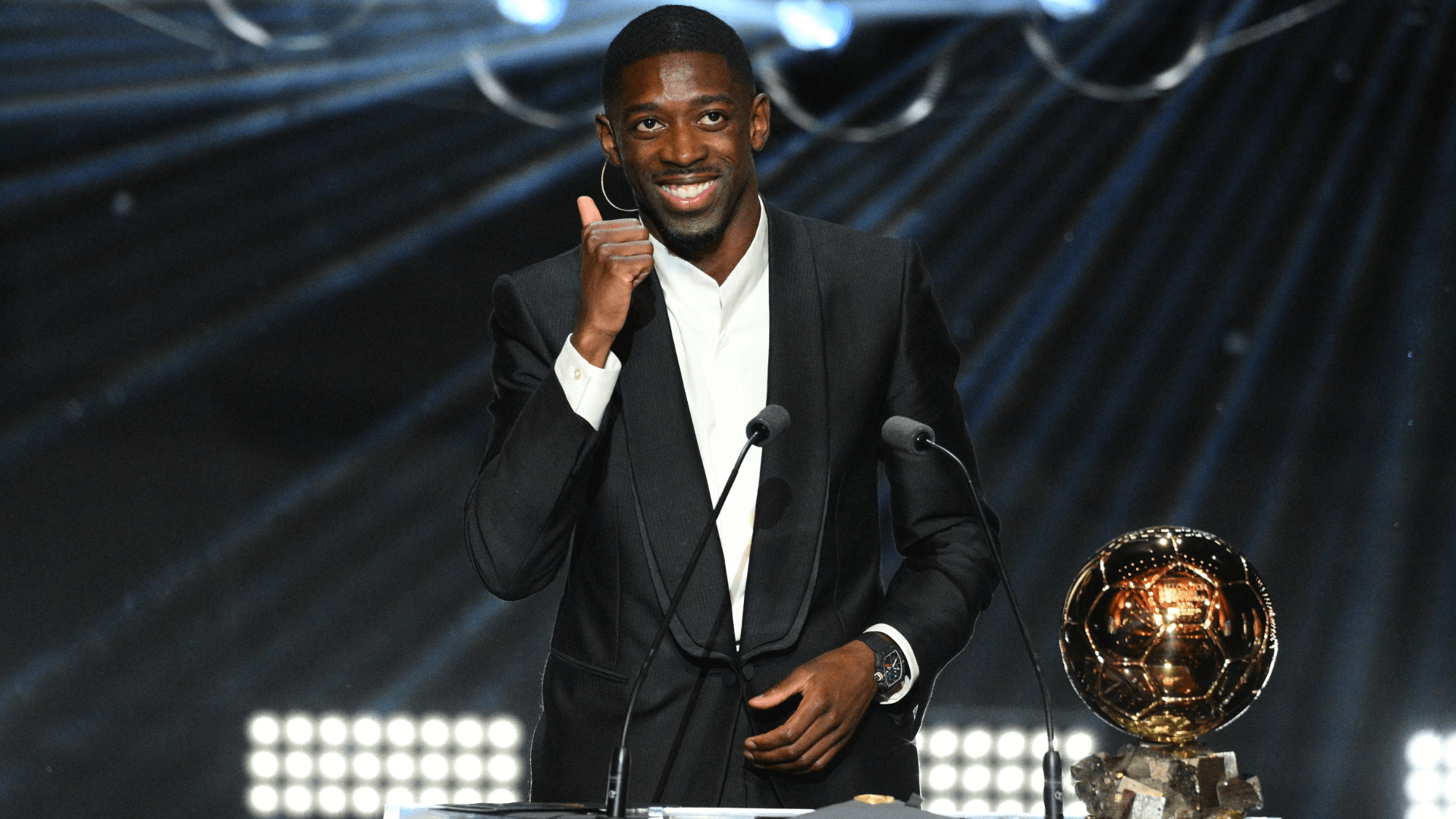Ousmane Dembélé’s Ballon d’Or win is more than a personal achievement; it’s a celebration of African heritage, sacrifice, and football’s global identity. His mother’s promise to carry the trophy across Africa turns the victory into a shared continental moment.
Ousmane Dembélé’s historic win has reconnected Africa to football’s highest honor, making him the first player of direct African heritage to claim the Ballon d’Or since George Weah’s groundbreaking triumph three decades ago.
The golden ball gleamed beneath Parisian lights as Dembélé lifted the 2025 Ballon d’Or at the Théâtre du Châtelet, dedicating the victory to his mother, Fatimata Sy. What shone beyond the emotion was a deeper story, stretching from the suburbs of Vernon to the villages of Mali and Mauritania. His win is not just personal—it reshapes Africa’s presence in football history.
The African Heritage Connection
Dembélé’s lineage runs proudly through Mali and Mauritania. His father emigrated from Mali, while his mother left Mauritania more than thirty years ago in search of opportunity in France. Raised in Normandy, Dembélé embodies the African diaspora, carrying its story onto the world stage.
The significance of this identity appeared in his speech when his mother declared, “This is the Ballon d’Or of all of Africa.” Her promise to showcase the trophy across Senegal, Mauritania, and beyond turns his individual victory into a collective source of pride.
The Historical Context: Beyond George Weah
When George Weah won in 1995, he became the first African-born Ballon d’Or winner and broke Europe’s historic grip on the award. His achievement remains a landmark, but several players of African descent have followed in different ways:
- Eusébio (1965): Mozambique-born, representing Portugal
- Zinedine Zidane (1998): French icon of Algerian Kabyle descent
- Karim Benzema (2022): French striker with Algerian heritage
- Ousmane Dembélé (2025): French international with roots in Mali and Mauritania
Dembélé’s success both honors Weah’s trailblazing role and complicates the narrative of African identity in global football.
Continental Recognition and Global Response
Across Africa, Dembélé’s win was celebrated as the end of a 30-year wait for acknowledgment. His mother’s words, amplified across African media, turned his victory into a continental affirmation.
UEFA praised his record-breaking season, which included 37 goals and 15 assists, leading PSG to their first Champions League title.
France Football highlighted him as the sixth Frenchman to achieve this honor. Additionally, Mali and Mauritania issued rare joint statements of pride, framing his triumph as a shared heritage and success.
Africa’s Ongoing Ballon d’Or Journey
The historical record shows both progress and scarcity:
- Only one African-born Ballon d’Or winner: George Weah (1995, Liberia)
- Three players of African descent: Eusébio, Zidane, and Benzema
- Recent strong challengers: Sadio Mané (2nd in 2022), Mohamed Salah (4th in 2025), Victor Osimhen (nominated in 2023), Achraf Hakimi (6th in 2025)
For CAF and the African Union, Dembélé’s win confirms Africa’s growing influence in world football—a reminder that its players continue to shape the game’s biggest stages.
Ousmane Dembélé’s 2025 Ballon d’Or is more than recognition of brilliance; it is a story of migration, heritage, and pride. While George Weah remains the continent’s only homegrown winner, Dembélé broadens the legacy, uniting Africa and its diaspora in a golden moment.
As his mother prepares to take the trophy across the continent, the message is unmistakable: the heartbeat of world football continues to draw strength from African roots.
Leave a comment
Your email address will not be published. Required fields are marked *





